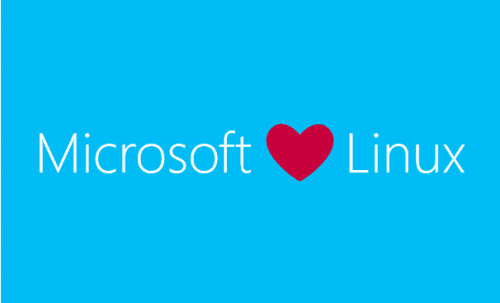
Recently Microsoft Announces Further Facilitating Interoperability between operating system based on Linux and Windows 10 by making the specifications of your exFAT file management system public.
Though this move by Microsoft does not release the source code, what it does is you are only releasing the rights to use exFAT and to reserve any intention of claim or demand together with the members of the Open Invention Network (OIN).
Established in 2005, it is a Linux-based community of more than 3040 companies around the world that have agreed to license their patents, royalty-free, to protect Linux against lawsuits.
Formerly for Linux users who were trying to use a storage medium with this file system, the only solution in this case (if your storage device is formatted in exFAT) it is often to manually enable exFAT support in your distribution of Linux, which in the case of Debian and derivatives is:
sudo apt-get install exfat-fuse exfat-utils
In this regard, John Gossman, a Microsoft engineer and a board member of the Linux Foundation, said:
“Microsoft likes Linux. We say it often and we really think about it! Today, we are pleased to announce that Microsoft is supporting the integration of its exFAT technology into the Linux kernel "and" the possible inclusion of a Linux kernel that supports exFAT in a future revision of the "Linux system definition". Highlighting the importance of Microsoft allowing the Linux community to confidently use exFAT in the Linux kernel, Gossman explained that this initiative should "facilitate the development of compatible and interoperable implementations."
The choice of the file system is primarily based on the operating system. When you format a storage device in Windows Vista Service Pack 1 or later (Windows 7, 8, 8.1, and 10), you have the option of choosing from three file systems: FAT32, exFAT, and NTFS, to use your device.
Of the file systems created by Microsoft, there are:
FAT32
The FAT32 file system created in 1977 by Microsoft is the least efficient and the least advanced of the three, but offers greater compatibility with other operating systems and removable storage devices.
Unfortunately, FAT32 cannot store files larger than 4GB on a formatted drive.
NTFS
NTFS (New Technology File System) is the successor to the FAT (acronym for English File Allocation Table). NTFS has many technical improvements over FAT and HPFS (High-Performance File System), such as improved metadata support, the use of advanced data structures to improve performance, reliability, and disk space utilization, as well as additional extensions such as the file system registry and the access control list (ACL).
exFAT
exFAT (Extended File Allocation Table) is a proprietary file system designed by Microsoft primarily for flash memory and external storage media. In general, file access and manipulations are faster on exFAT than on FAT32 and NTFS. Like NTFS, exFAT can store files larger than 4GB on a formatted drive.
ExFAT support is natively integrated with Windows from Windows 7 and macOS from Mac OS X 10.6.5 "Snow Leopard".
But it is possible to use exFAT in XP SP2 or SP3, thanks to the KB955704 update, and in Vista, thanks to the implementation of Service Pack 1.
exFAT is also compatible with most GNU / Linux operating systems, via a free FUSE-based driver.
However, a license issued by Microsoft was previously required to develop or distribute such an implementation. It should be noted that almost all existing devices support exFAT on their SDXC cards to be compatible with Windows.
This news should delight all open source and Linux supporters (who use exFAT or not). Because if you regularly recommend Linux-based operating systems to your friends and family, you can now be sure that your external storage devices will work as expected on Linux and Windows platforms.